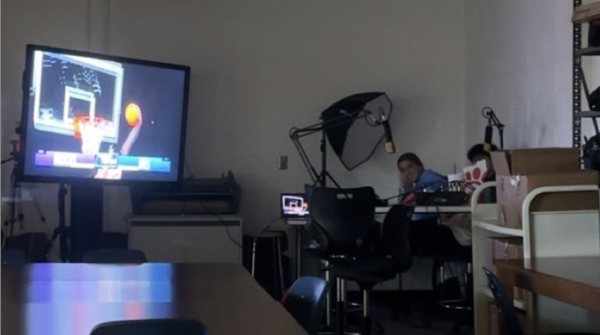“Cambridge Olympians”: Is it Possible?
Can Cambridge produce a future Olympic athlete?
Swimmer Jay Litherland from Alpharetta placed fourth at the Olympics in Rio. Litherland, who swam men’s 400-meter individual medley, was the closest athlete to Cambridge to compete in the Rio summer games.
Cambridge has never produced an Olympic athlete. Some coaches and students think the school never will.
Head Swimming Coach Lauren Hall said if a high school athlete intends to go to the Olympics, “by now you’ve already been pinpointed.”
Hall goes on to explain that recruiters will have already reached out to potential Olympians at a very young age.
Hall also said she thinks the Milton-Alpharetta community is more focused on academics than athletics, rendering Olympic inclusion unlikely.
Hall also pointed out that high school practice isn’t enough to compete in the Olympics, and that one needs private training if he or she wishes to compete. This training, she said, is often expensive, and in many instances, involves a family moving near a training center.
“People literally pick up and move,” said Hall talking about families of aspiring Olympians.
In the end, Hall concluded that potential Olympians need to leave behind a typical American high school life to compete. They have to take their sports more seriously than their studies and jobs.
Head Cross Country Coach Brad Coulter disagrees somewhat with Hall. He said he thinks potential Olympians need time in college to develop.
One of his runners, sophomore Taya Jackson, has competed in track her whole life and does year-round training. She said she is training to compete in the Olympics and hopes to hone her running in college.
“I’ve been debating on going to [The University of] Oregon,” said sprinter Taya Jackson.
Senior Austin Daniel, who holds multiple school swimming records, believes that through effort the Olympics is a real, practical goal for him.
Daniel attends private training and practices all year.
Daniel said his times are getting closer to qualifying for the Olympic trials.
Some in the Cambridge community believe training for the Olympics, or for any major sporting event in general, is more harmful than people realize.
Senior diver Maddie Chaloux said she believes preparation for the Olympics can often be detrimental. Chaloux said a friend who attended Rivers Academy, a school for students who desire to focus more on sports, trained for the Olympics and found herself getting injured frequently.
“If you’re putting year-round effort into a sport, that can hurt your body,” said Clinic Assistant Karen Thimsen.
Thimsen also said that high school is a time of critical mental development for teenagers, and that taking sports so seriously can distract students from this development.
Athletes interviewed at Cambridge seem to believe that the Olympics is a practical goal. Coaches, on the other hand, seem a bit more skeptical.
“There’s always exceptions, though,” said Hall.
Williams is a senior, and has been the sports editor for two years.



